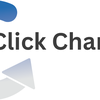In the digital age, social media has evolved beyond being merely a platform for connecting with friends and sharing personal updates. It has become a thriving economy in its own right, driven by the currency of attention. The attention economy on social media is a complex and dynamic system that influences not only our online interactions but also shapes the way businesses operate and individuals build personal brands.
The Currency of Attention
In the realm of social media, attention is the primary currency. Platforms like Facebook, Instagram, Twitter, and TikTok thrive on user engagement, and the more attention a post or content receives, the more valuable it becomes. This attention can manifest in various forms, including likes, shares, comments, and views. Users compete for this scarce resource, and the platforms themselves are constantly refining algorithms to capture and distribute attention efficiently.
Content Creation as a Commodity
Content creators play a pivotal role in the social media economy. From influencers and bloggers to artists and entrepreneurs, individuals create content to capture and hold the attention of their audience. The creation of compelling and shareable content has become a valuable commodity, and successful creators can monetize their content through various means, such as brand partnerships, sponsored posts, and affiliate marketing.
Influencers, in particular, leverage their ability to engage and influence their followers to become a bridge between brands and consumers. Companies are willing to pay significant sums for influencers to promote their products or services, recognizing the power of a trusted voice in the digital landscape.
The Rise of the Creator Economy
The creator economy has emerged as a significant subset of the social media economy, empowering individuals to turn their passion into profit. Platforms like YouTube, Patreon, and Substack enable creators to monetize their content directly through memberships, subscriptions, and exclusive content. This shift has democratized the process, allowing creators to have more control over their financial destinies and connect more intimately with their audience.
The creator economy is not limited to traditional influencers; it encompasses a wide range of talents, including writers, musicians, artists, and educators. Social media platforms have become virtual marketplaces where these creators can showcase and sell their skills directly to their audience.
Advertisers and the Attention Auction
For businesses, social media represents a vast landscape of potential customers, and advertising has become a cornerstone of the digital economy. Advertisers bid for users' attention through targeted ads, utilizing the data collected by social media platforms to tailor their messages to specific demographics. The success of an ad campaign is measured not just by traditional metrics like reach and impressions but by the level of engagement and interaction it generates.
Social media platforms act as auction houses for attention, and businesses compete to craft the most compelling content to capture the limited resource. This has led to the rise of native advertising, where promotional content seamlessly integrates with the user's natural browsing experience, creating a more organic and engaging form of advertising.
Challenges and Ethical Considerations
While the social media economy has brought about numerous opportunities, it also faces challenges and ethical considerations. The pursuit of attention has led to concerns about the impact on mental health, as users navigate a constant stream of curated content and comparison. Additionally, the monetization of personal data raises questions about user privacy and the ethical use of information for targeted advertising.
Social media platforms are under increasing pressure to address these concerns and create a more sustainable and ethical digital ecosystem. Striking the right balance between profitability and user well-being is an ongoing challenge that requires constant innovation and collaboration between platforms, users, and regulators.
Conclusion
In the digital age, social media has evolved into a dynamic economy driven by the currency of attention. From content creators monetizing their passion to businesses vying for users' eyeballs through targeted advertising, the social media economy has reshaped the way we connect, consume information, and conduct business. As we navigate the complex landscape of the attention economy, it becomes essential to strike a balance that fosters innovation and creativity while safeguarding the well-being of users in this digital marketplace..Read more


No comments yet